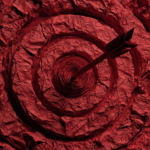The Duelist (IOTA)

"Victory belongs to the mind that outthinks before the body outperforms."
At a Glance
The Duelist approaches athletics as intellectual warfare, driven by genuine love for their craft rather than external validation. They prepare with the precision of a military strategist, studying opponents as unique tactical puzzles requiring systematic deconstruction. Their competitive fire burns brightest in head-to-head confrontations where months of solitary preparation meet real-time adaptation.
Think you might be The Duelist?
Take the Free 5-Minute Assessment →Understanding The Duelist
The Duelist occupies a distinctive psychological space in athletics. They train with genuine passion for the craft itself, spending hours refining technique not because anyone demands it, but because their analytical mind recognizes each movement’s competitive value. This intrinsic  Drive creates a self-sustaining engine that requires no external fuel. No coach needs to motivate them – no crowd needs to cheer. The work itself provides meaning.
Drive creates a self-sustaining engine that requires no external fuel. No coach needs to motivate them – no crowd needs to cheer. The work itself provides meaning.
What distinguishes this profile from other internally motivated athletes is their relationship with competition. They do not simply love their sport in isolation. They transform personal passion into strategic preparation for direct confrontation. The Duelist experiences an almost physical anticipation when a worthy opponent emerges – suddenly, all those solitary training hours gain sharper purpose.
Their competitive drive differs fundamentally from athletes seeking rankings or social recognition. The Duelist competes to solve problems. Each opponent presents a unique equation requiring analysis, preparation, and tactical execution. They study movement patterns the way others study film for entertainment, as they notice behavioral tendencies that reveal psychological vulnerabilities. This intellectual engagement with competition creates satisfaction that transcends simple winning or losing, as the Duelist’s mind works continuously during competition, processing information and adjusting strategies in real-time. They experience competitive moments as conversations rather than battles, complex exchanges where preparation meets adaptation and superior problem-solving determines outcomes.
Core Strengths and Growth Edges
Psychological Advantages
Self-sustaining motivation stands as this profile’s foundational strength. While other athletes experience motivation fluctuations tied to results or recognition, the Duelist maintains consistent drive through genuine love of skill development. They show up to train on days when no one would notice their absence, while this reliability compounds over months and years into substantial competitive advantages.
Their opponent analysis capabilities transform competition into intellectual warfare – the Duelist notices patterns that escape casual observation. They track how opponents respond under pressure, where technical weaknesses emerge during fatigue, and which tactical approaches create confusion; this this systematic preparation means they rarely enter competition without specific strategic objectives.
Independent confidence represents another core strength. Because their belief comes from personal mastery rather than external validation, it proves more resilient under pressure. The Duelist knows exactly what they have prepared. They trust their tactical analysis. And this internal foundation holds steady when external circumstances become chaotic.
Vulnerable Areas
The same analytical mind that drives preparation can become a liability during competition. The Duelist sometimes overthinks tactical options when intuitive reactions would serve better, and their processing speed cannot always keep pace with competitive demands, creating hesitation at critical moments.
Solitary training creates blind spots. Technical flaws that an outside observer would immediately notice can become ingrained habits when practice happens in isolation. The Duelist may develop strong opinions about their technique that resist correction, even when video evidence suggests adjustment would help.
Their detailed preparation methods falter against unknown quantities. Yet when facing opponents without available footage or competitive history, the Duelist loses a significant portion of their strategic advantage. This can create anxiety that undermines performance in situations requiring pure improvisation.
Training Psychology and Approach
The Duelist gravitates toward training environments that minimize social interruption. Early morning sessions in empty facilities appeal to them. Home training spaces where they control every variable allow deeper concentration than busy gyms with constant conversation. They prefer to train alone or with focused partners who understand that practice time is not social time.
Their relationship with coaches tends toward selective engagement. The Duelist values technical expertise and strategic insight but resists coaching that feels prescriptive or controlling. But they respond best to coaches who provide information and perspective, then trust them to integrate that input according to their own understanding. Authoritarian coaching styles create friction.
Training periodization for this profile often centers around competitive targets. When a significant opponent emerges on the schedule, the Duelist’s preparation intensifies and focuses. They study film, and they design practice scenarios. They mentally rehearse tactical sequences. So this opponent-specific preparation phase represents their optimal training state.
Between competitive targets, however, motivation can waver. The Duelist may struggle to maintain intensity during extended periods without clear opponents on the horizon, demonstrating that building sustainable training habits requires connecting daily practice to longer-term skill development rather than immediate competitive objectives.
Compatible Athletic Environments
Individual Competition Settings
Head-to-head competitive formats align naturally with the Duelist’s psychology. Tennis, fencing, wrestling, Brazilian jiu-jitsu, and combat sports offer direct confrontation where tactical preparation meets real-time problem-solving. These environments reward exactly what the Duelist brings: deep strategic analysis, technical precision. Adaptive thinking during competition, as individual sports with clear competitive structure allow them to prepare specifically for known opponents. They can study tendencies, identify patterns, and develop targeted game plans. The competitive experience itself becomes the culmination of their preparation rather than a separate entity requiring different skills.
Team Context Considerations
Team environments present more complexity for the Duelist. They can thrive in positions that require tactical decision-making – point guard, quarterback, central midfielder, where their strategic processing provides team-wide value. However, the social dynamics of team sports may feel draining.
The Duelist connects most naturally with teammates who share their competitive seriousness. Casual attitudes toward preparation frustrate them. Team-building activities focused on social bonding rather than performance feel like wasted time. They show care for teammates through preparation and reliability rather than emotional expression, which can create misunderstanding with athletes who expect more visible warmth.
When team dynamics prioritize consensus and harmony over pursuing effective strategies, the Duelist experiences significant frustration, and they prefer environments where tactical decisions follow logic rather than politics. Teams that value their analytical contributions without demanding social effusiveness represent the best fit.
Recreational Versus Competitive Balance
Pure recreational contexts rarely satisfy the Duelist long-term. They need competitive stakes to engage their full psychological resources. However, excessively high-pressure environments that emphasize outcomes over process can undermine their intrinsic motivation; this the optimal balance involves regular access to meaningful competition without external pressure that corrupts their internal drive. Training facilities offering both solitary practice space and access to skilled training partners provide ideal infrastructure. So the Duelist needs controlled environments for technical development and competitive simulation opportunities for tactical practice; settings that support both without forcing constant social interaction allow them to train according to their natural rhythms.
Performance Development Path
Long-term development for the Duelist follows a cyclical pattern of experimentation, analysis, and refinement, which means that they naturally reflect on performances with honest self-assessment, identifying technical gaps without defensive rationalization. This analytical approach accelerates learning when applied constructively.
Using their psychological strengths means building systematic improvement frameworks that channel their analytical tendencies productively, as the Duelist benefits from structured goal-setting that includes process objectives alongside outcome targets. Focusing exclusively on defeating specific opponents narrows development. Broader skill acquisition goals maintain complete growth even during opponent-specific preparation phases, and working through plateaus requires patience with their own development timeline. The Duelist’s high standards can create frustration when progress occurs more slowly than expected. They benefit from tracking metrics that reveal gradual improvement invisible in day-to-day training, while data provides evidence their analytical mind accepts more readily than subjective reassurance.
Seeking external perspective represents a crucial growth edge. The Duelist must balance their independent nature with selective input from coaches, training partners, or video analysis that reveals blind spots their isolated viewpoint cannot access. Finding mentors who respect their autonomy while offering honest feedback accelerates development significantly.
Mental Barriers and Breakthroughs
Analysis paralysis represents the most common psychological obstacle for this profile. The Duelist’s strength in strategic thinking becomes a barrier when they cannot stop processing options and start trusting prepared responses. Competition demands a transition from analytical mode to execution mode that some Duelists struggle to complete, and building automatic responses through deliberate practice helps address this pattern. When tactical options become ingrained through repetition, execution requires less conscious processing. The Duelist can train themselves to trust their preparation and react rather than calculate during high-pressure moments.
Over-identification with preparation creates another common barrier. When thorough analysis fails to produce expected results, the Duelist may experience disproportionate frustration. They invested significant cognitive and emotional resources in understanding their opponent – losses feel like intellectual failures rather than simple competitive outcomes.
Developing psychological flexibility around results helps, so competition involves variables beyond any athlete’s control. The Duelist who can separate the quality of their preparation and execution from ultimate outcomes maintains more sustainable competitive engagement. Process-focused evaluation protects against result-dependent emotional swings.
Sustaining Peak Performance
Long-term motivation for the Duelist depends on maintaining connection to intrinsic love of their sport. External pressures, sponsorship demands, ranking obsession, social media metrics – can corrupt the internal drive that makes this profile distinctive while also protecting space for training that exists purely for mastery sustains psychological energy across competitive careers.
Recovery patterns matter more than many Duelists recognize. Their analytical minds can stay engaged with competition long after physical training ends. So studying opponents, reviewing footage, and planning tactics all feel productive, while however, genuine psychological recovery requires complete disengagement. The Duelist must intentionally create mental space away from competitive thinking to avoid chronic cognitive fatigue.
Worthy opponents play a crucial role in sustained motivation. So the Duelist’s competitive fire burns brightest when facing adversaries who demand their best preparation and execution – seeking out competition that challenges their tactical capabilities maintains engagement more effectively than accumulating easy victories. They grow through the problems opponents present, not through confirming existing superiority.
Building variety into training prevents staleness. While the Duelist prefers focused, systematic preparation, introducing novel training stimuli and unfamiliar tactical challenges keeps their analytical mind engaged, which means that predictable routines eventually bore even internally motivated athletes. Structured experimentation maintains freshness without sacrificing purposeful preparation.
Mastering Your Athletic Identity
The Duelist brings a distinctive combination of internal drive and competitive intensity to athletics. Their genuine love for skill development sustains training through phases that defeat externally motivated athletes – their tactical intelligence transforms competition into intellectual engagement that transcends simple physical confrontation.
Understanding this psychological profile allows for more intentional athletic choices, while seeking environments that reward preparation and strategic thinking plays to natural strengths. Building systems that address isolation-created blind spots prevents avoidable developmental gaps. Growing the flexibility to trust instinct during competition complements analytical preparation.
The path forward involves honoring what makes this profile distinctive while developing capacities that do not come naturally. The Duelist who balances independent preparation with selective external input, who channels analytical intensity without becoming paralyzed by options, who maintains intrinsic motivation while engaging competitive stakes, this athlete realizes their full potential. They become the strategist who can also execute, the analyst who can also adapt, the prepared competitor who can also improvise when preparation proves insufficient.
